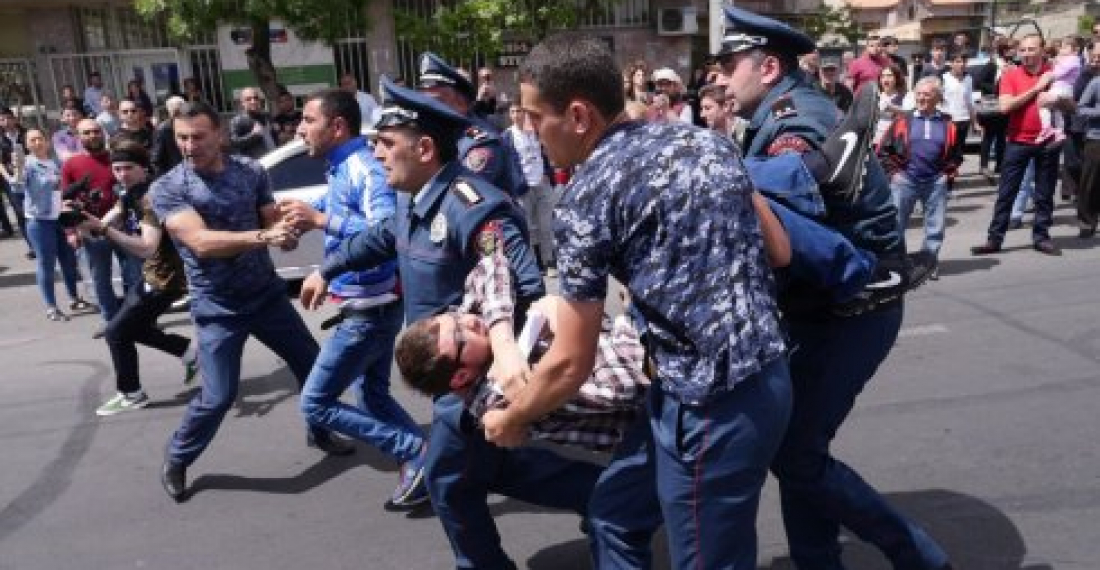Street protests continued in Yerevan on Thursday (19 April), and over one hundred persons were detained by police. Protestors are angry at the appointment of Serzh Sargsyan as Prime Minister at the end of his ten year stint as the country's president. There is increasing concern in the international community, amid appeals for calm and measured steps by all sides.
Ingibjörg Sólrún Gísladóttir, Director of the OSCE Office for Democratic Institutions and Human Rights (ODIHR), on Thursday urged the authorities in Armenia to protect and ensure the right to freedom of peaceful assembly in the country, as protests there continue.
"All people have a fundamental right to express their opinion in peaceful protests," the ODIHR Director said. "Law enforcement authorities must not only refrain from interfering with the right to freedom of peaceful assembly, but have a responsibility to facilitate this right. This includes ensuring the safety and security of participants in the face of any disruptions, such as by agent provocateurs or counter-protestors."
While noting the offer by the Armenian authorities to engage in dialogue with the opposition, Gísladóttir expressed concern over reported instances of the disproportionate use of force by Armenian police against peaceful protestors, including minors, as well as indiscriminate arrests in Yerevan and other cities.
"The authorities must make certain that any measures to ensure public security are lawful, necessary and proportionate, and are not aimed at muting dissenting opinions," Gísladóttir said.
Statements have also been issued by the European Union and the US State Department.
source: commonspace.eu
photo: A protestor being dragged away by police in Yerevan on 19 April 2018 as street protests cpntinue (picture courtesy of Radio Liberty)







